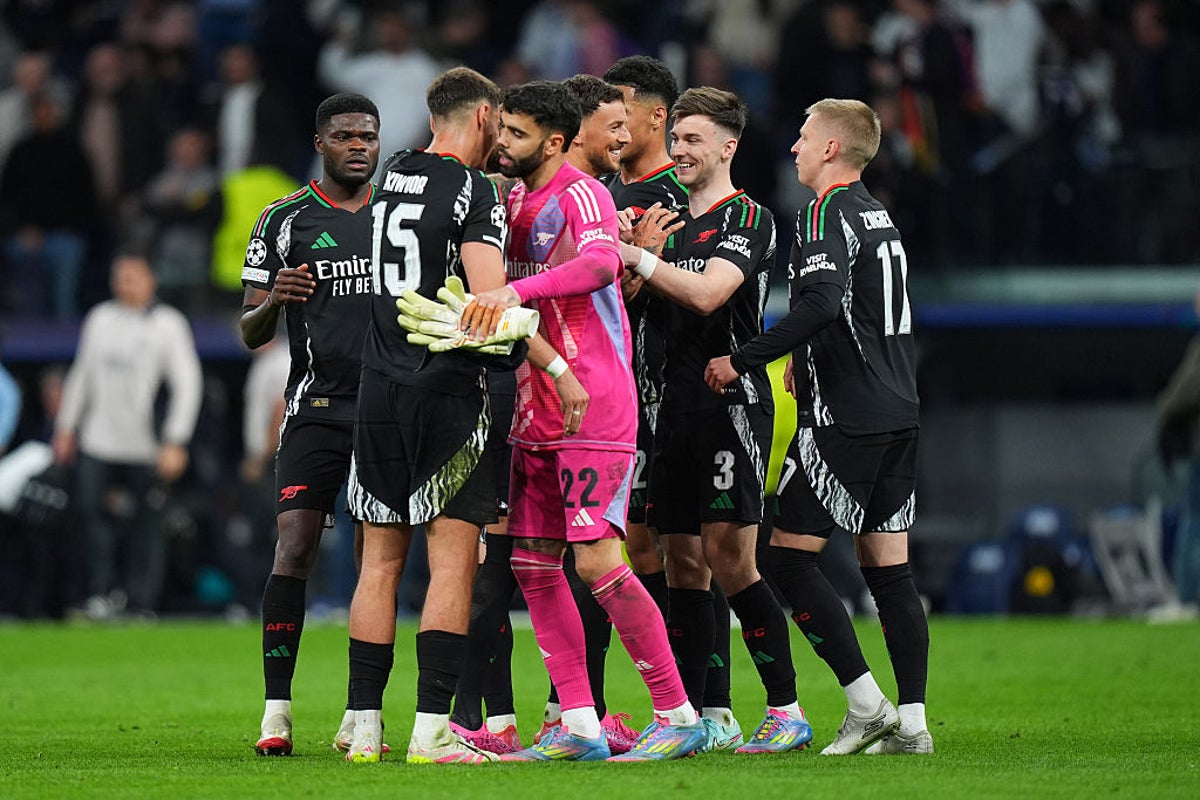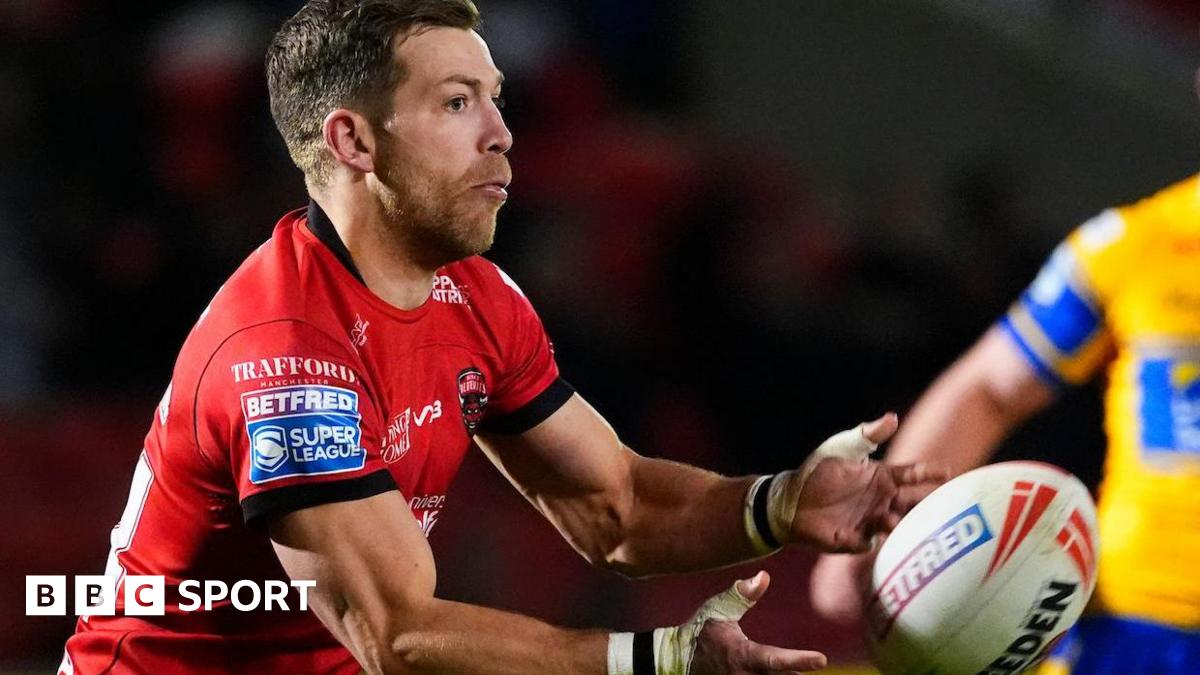As Mikel Arteta came out for his pre-match duties before Tuesday’s Champions League semi-final, he was absolutely beaming. You really got the sense of a football figure relishing the occasion, and he certainly set the right tone.
That’s now been the case for two weeks. An ultra-focused Mikel Arteta has particularly sought out David Raya and Mikel Merino. The two played under Paris Saint-Germain manager Luis Enrique for Spain, and Arteta and his staff have naturally been keen for any extra insights.
None of it is really new, of course. They are well aware of what PSG can do. One of the reasons Arsenal are at this stage is because their preparation is so thorough.
What is new for this group, however, is that very stage. This is the first time that Arteta’s side have reached a Champions League semi-final, and just the third time that Arsenal have in their entire history.
It is a point already well made that these are probably the two biggest clubs to not yet have won the Champions League, Atletico Madrid withstanding. One of them will go on to have the best possible opportunity to set that right. Both Arsenal and PSG have each appeared in one final each, losing in 2006 and 2020, respectively.
Discussion of such history can be a bit double-edged for club staff. Managers want the players to be inspired by it, but they don’t want it weighing on anyone.
“Live the now, the present is where we are,” Arteta said. His team are duly enjoying the rare atmosphere that comes with occasions like this.
Arteta has actually been beaming all week. “You sense the energy,” the Basque said. “It is something unique, probably one of the biggest games in this stadium.” Gabriel Martinelli called it “the game of his life”.
There is little like it in football, that crackling energy that charges the build-up. The modern game may have so many issues, as witnessed in the very fact that Arsenal are taking on a Qatari sportswashing project and how the Champions League itself has become such an engine of inequality in football.
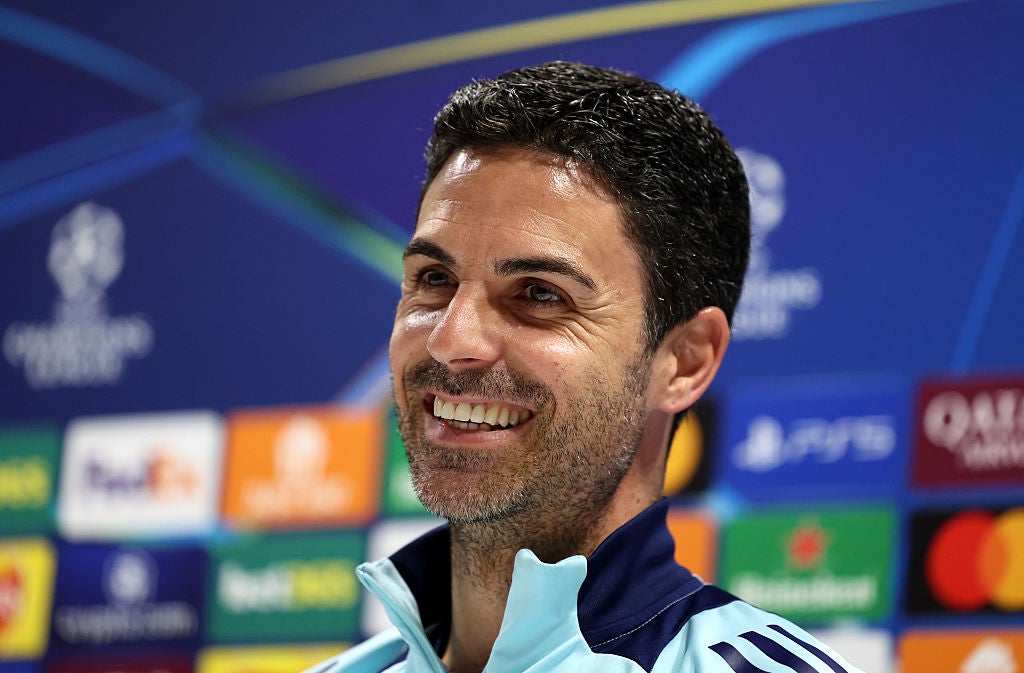
That famous theme starting up when it gets to this stage is still stirring. Arteta has frequently told his players that this is the level they need to become accustomed to.
When he spoke to Pep Guardiola before the Real Madrid game, too, the Catalan couldn’t help commenting how he misses that feeling when his teams aren’t there. This is really what a club like Arsenal should have much more experience of. It is actually something of a historical quirk that one of the grand institutions of English football does not have a more distinguished legacy in the European Cup.
That is why Arteta’s main message throughout this campaign has been to “write their own history”. There are actually rational reasons why that is the case. Over half of Arsenal’s 13 titles came before the European Cup was invented. Their 1971 double winners were then unfortunate enough to meet possibly the greatest club side ever, in Johan Cruyff’s Ajax, in the quarter-finals. George Graham’s two leagues then came at the end of the English clubs’ ban after Heysel, so they weren’t allowed to enter in 1989-90 and just didn’t have that crucial European experience in 1991-92.
Arsene Wenger’s Arsenal famously developed more Champions League experience than almost any other club in consistently getting to the last 16. The issue was that it was rarely much further. The 2003-04 season remains the great lost opportunity, when Arsenal probably were the best side in Europe. Wenger has always lamented how it was that one thing missing from his reign: European glory.
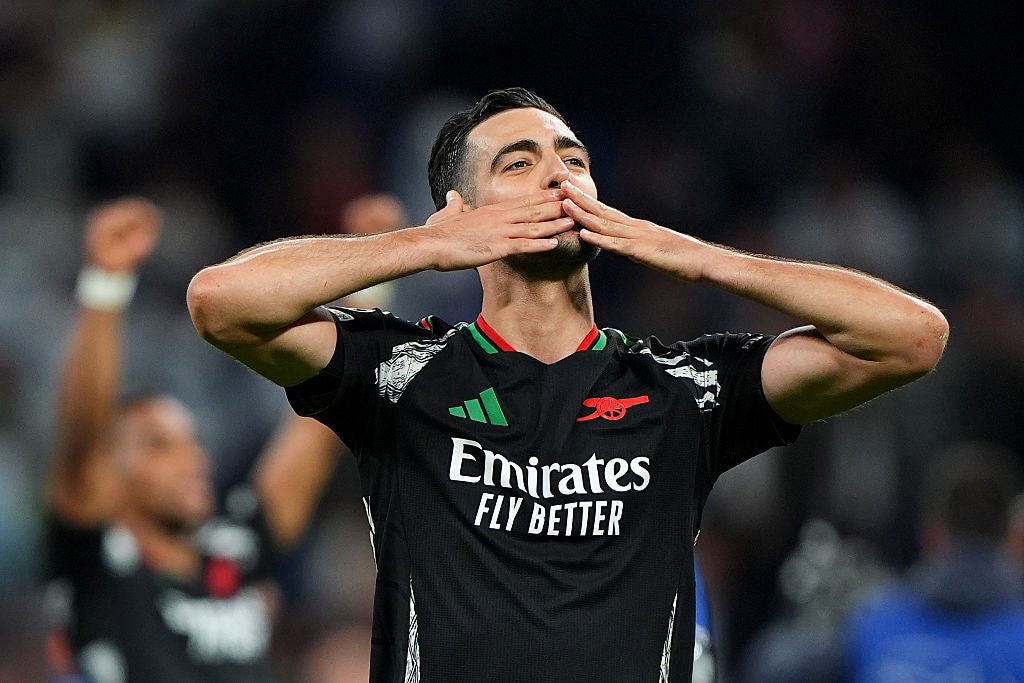
By the time the French great entered his latter years at the club, Arteta himself was there in midfield and could see how they were short of the level required.
It has informed some of his approach now. The past record might be “irrelevant”, as Arteta said. The lessons from it are not.
“We are very close, and now we have to take the opportunity to make it happen,” Arteta said. Such comments touch on another feeling around Arsenal right now, that complements the sense of anticipation. It is a growing sense of destiny that they are going to do this. The way the campaign has evolved, right through the destruction of Real Madrid, has only deepened that.
Although the injuries over the season would usually foster more doubts, not least for this semi-final, it has had the opposite effect. It has made the players believe they can overcome anything, with Arteta constantly stressing that message. He made a point of stating how “we have overcome issues and challenges”.
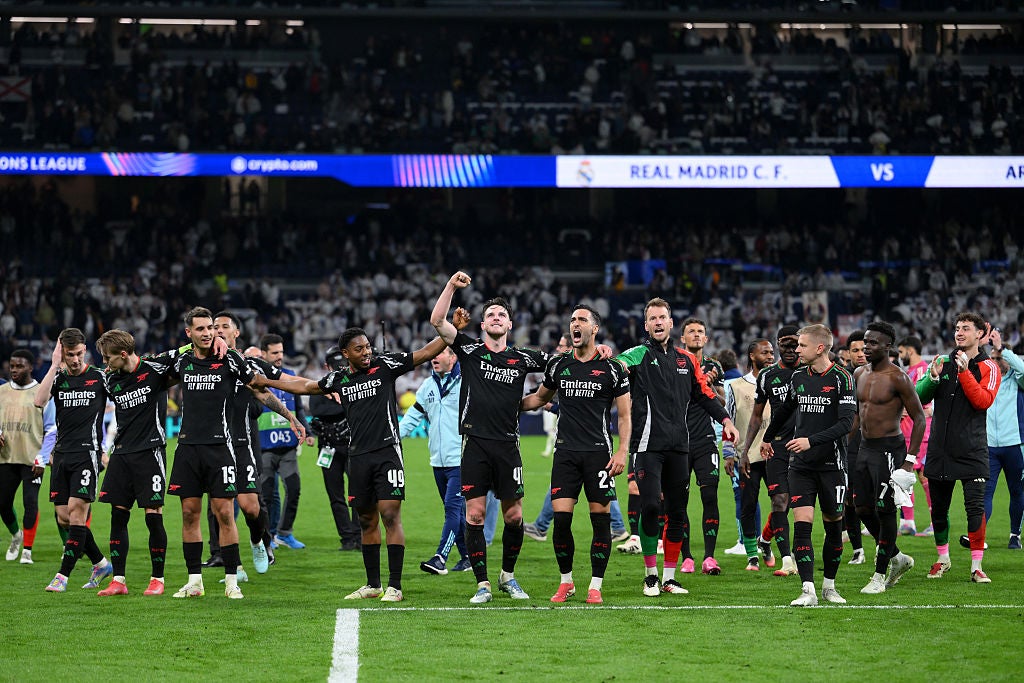
Arteta indicated some of this as he spoke about how the players “need to visualise it, to be convinced by it”.
A feeling and the actual football are two very different things, though. Arteta’s close friend Mauricio Pochettino had a similar sense of destiny before Tottenham Hotspur’s 2019 final defeat to Liverpool. Arsenal would of course stress they’re very much not Tottenham.
While previous wins in adversity might have emboldened the team, injuries to one of your main centre-halves and main forwards are likely to eventually have an effect. Arteta would obviously rather have Gabriel there as that hurricane-force PSG attack goes at them. At the other end, the main importance of Kai Havertz is how much he gets Arteta’s pressing. The absence of Thomas Partey’s energy is going to be more keenly felt given the pace that PSG can play at.
This is where those extra insights from players who know Luis Enrique are all the more important. The level is so high for games like this that they are decided by those details. You only have to consider PSG’s own passage here. As brilliant as they were in the quarter-final first leg against Aston Villa, they ended going through by fine margins.
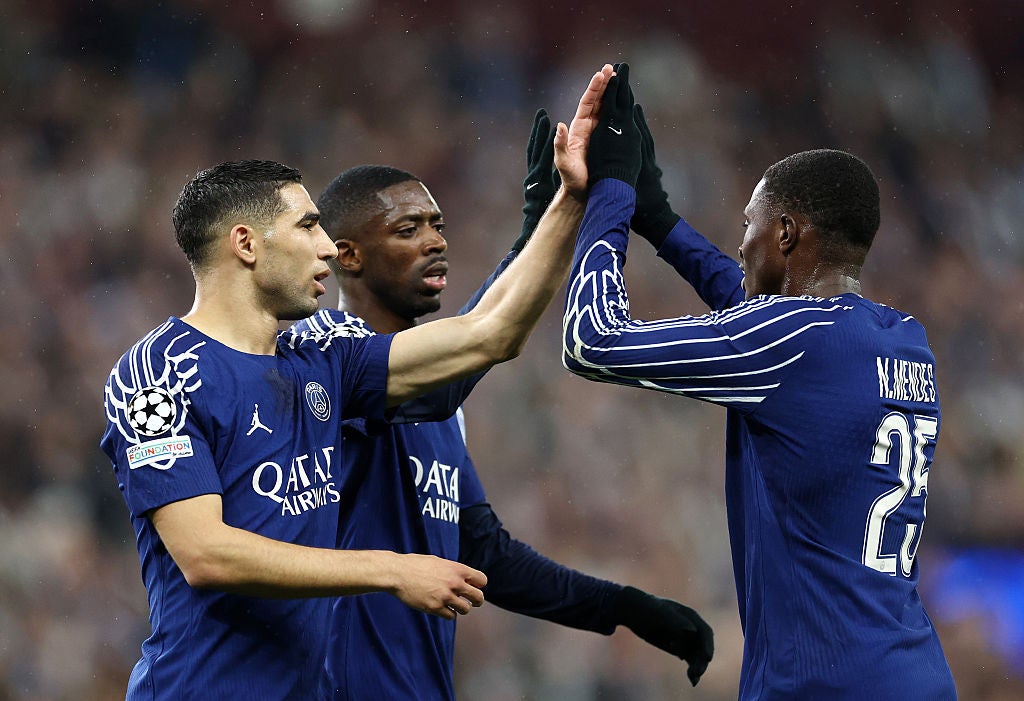
That tie displayed a vulnerability in Luis Enrique’s team, that probably hasn’t been seen since Arsenal’s own 2-0 win over them in the league stage. Friday’s 3-1 defeat to Nice won’t have helped. It is a sudden drop at the wrong time.
Those at Arsenal may well point out that’s just a natural issue when the entire focus is on the Champions League, as seen in their own recent Premier League results.
While Arteta’s preference would be to play in that high-press high-intensity style that Luis Enrique favours, one of Arsenal’s strengths is their adaptability. They can dig in and defend, in a way that can be crucial in cup football like this. PSG might have already been beaten by Arsenal this season but this team haven’t quite faced a test like this. Teams don’t quite defend like this any more. On the other side, Arsenal are facing an attack – and especially Kvicha Kvaratshkelia and Ousmane Dembele – that have recently been relentless.
All of that forms quite the set-up for a semi-final.
“It’s a beautiful moment,” Arteta surmised. “Live it and enjoy it.”

